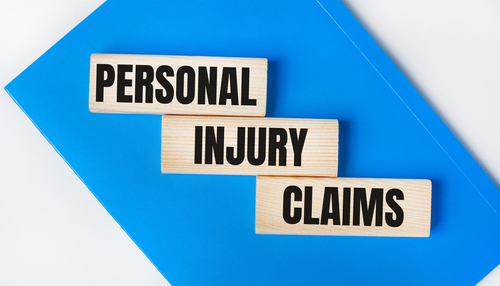
If you have been injured in an accident in Florida that was caused by someone else’s negligence or fault, here are some important things you need to know about Florida’s personal injury laws and how they can affect your rights.
Car Accidents Are the Most Common Cause of Personal Injury
Car accidents often rank as the most common cause of personal injury in Florida. Florida is a “no-fault” state, which means that car drivers must have at least $10,000 in personal injury protection coverage. If a driver or their passenger is injured in a crash, they must first look to their own PIP coverage for compensation for medical bills and lost wages, regardless of who was at fault for the accident.
You Can Still Sue an At-Fault Driver Under the No-Fault Law
Even though injured drivers and passengers must first turn to their own PIP coverage for compensation, they may be entitled to file a lawsuit against the driver at fault for the car accident for outstanding medical bills and lost wages. However, compensation for non-financial losses, such as pain and suffering, can only be sought if a car accident victim sustained a “serious” injury, which includes injuries that:
- Are permanent
- Cause significant, permanent disfigurement or scarring
- Cause significant, permanent loss of a bodily function
- Result in death
You Have Limited Time to File Suit
Under Florida’s statute of limitations, you have only four years from the date that you were injured in an accident or by someone else’s negligence to file a lawsuit for compensation. In limited circumstances, this time period can be longer, such as when you could not immediately realize that you were injured or did not initially know who was at fault for your injuries. If you file a lawsuit after the statute of limitations expires on your claim, your case will likely be promptly dismissed and you will have lost your chance to recover compensation.
Calculating Pain and Suffering Compensation Is Complex
While you are entitled to recover compensation for financial expenses and losses like medical bills or lost income, you may also be entitled to financial recovery for non-financial losses that you have incurred, such as pain and suffering or reduced quality of life. However, unlike financial losses, pain and suffering compensation is not easily quantifiable. Factors that can affect the amount of pain and suffering compensation include the type and severity of injuries, the intensity of medical treatment, the length of the recovery period, and whether you have been left with permanent pain or impairments.
You Need Evidence to Prove Pain and Suffering
Establishing compensation for pain and suffering usually requires testimony from individuals who have knowledge of your injuries and the effect they have had on your life. This may include your doctor, mental health professionals that you have seen following your injury, your family members or close friends, as well as your own testimony about the impacts of your injuries on your quality of life.
Personal Injury Claims Are Subject to the Comparative Negligence Rule
Florida uses a “pure” comparative negligence rule, which states that you are not precluded from pursuing a personal injury claim against someone who has some share of fault for your injuries, regardless of the extent of your own fault for your injuries. However, the rule states that you must be held liable for a portion of your losses from your injuries in proportion to your share of fault. For example, if you incurred $100,000 in losses and are 25 percent at fault, you would be responsible for $25,000 of your losses.
Florida Caps Punitive Damages
In rare cases, punitive damages may be awarded when personal injury is caused by reckless, wanton, or egregious conduct. However, Florida law limits punitive damages to the greater of $500,000 or three times the amount of compensatory damages (including both financial and non-financial losses) that a personal injury plaintiff is awarded.
You Can Sue the Government for Personal Injury
If you are injured by the negligence or fault of the government or a public employee acting in the course of their duties, you may be entitled to file a personal injury claim against the government, provided it has waived its sovereign immunity for your claim, and you comply with the state law requirement to give the government notice of your claim within three years of the date of your injury. You cannot file suit until the government either deny your claim or after 180 days following the filing of your claim.
Contact a Lake Worth Personal Injury Lawyer to Discuss Your Accident Case in Florida
Did you or a loved one sustain serious injuries due to an accident in Florida? Don’t let the medical bills pile up while you wait for the negligent party or their insurance company to do the right thing. Right now, you need an aggressive personal injury attorney on your side, fighting to get you the compensation you need, want, and deserve. The skilled attorneys at Gonzalez & Cartwright, P.A. represent clients injured because of accidents in Miramar, Coral Springs, Davie, Boca Raton, and throughout Florida. Call (561) 533-0345 or fill out our online contact form to schedule a free consultation about your case. We have an office conveniently located at 813 Lucerne Ave., Lake Worth, FL 33460, as well as offices in Pompano Beach.
The articles on this blog are for informative purposes only and are no substitute for legal advice or an attorney-client relationship. If you are seeking legal advice, please contact our law firm directly.